- 12/09/14 Fault in our stars,
- 12/09/14 Petition for Obama
- 12/09/14 Top 100 Youtube Channels
- 15/09/14 YouTube stars and Facebook,
- 15/09/14 Game:Destiny- huge profit,
- 15/09/14 iPhone 6 release
- 22/09/14 Sexism at freshers week,
- 22/09/14 website: Alibaba worth more than Google?
- 26/09/14 Twitter targets film advertising,
- 26/09/14 Problems with iPhone 6
- 06/10/14 Sky ‘saddened’ over death of alleged McCann troll
- 08/10/14 UK viewers ‘spend five hours a week viewing TV, clips and films online’
- 08/10/14 BBC iPlayer catch-up window extended to 30 days
- 08/10/14 Last.fm made loss of £2.1m last year
- 10/10/14 Cassetteboy parodies
- 13/10/14 Can Twitter make money out of breaking news or is it a PR platform?
- 23/10/14 Twitter changes: 20 hits and misses from the social network's history
- 23/10/14 Is UKIP winning on Facebook and Twitter?
- 23/10/14 Facebook pays no UK corporation tax for a second year
- 23/10/14 Media jobs website Gorkana sold to Cision in £200m deal
- 7/11/14 John Lewis christmas advert
- 7/11/14 get over newspapers dying out
- 17/11/14Cost of pay for TV channels
- 17/11/14Facebook introducing 'Facebook for Work'
- 23/11/14 Social media to get a job
- 23/11/14 Print in decline
- 04/12/14 Twitter unveils new system for reporting abuse
- 04/12/14 Google and Facebook dominate digital market
- 04/12/14 Tesco joins retail stampede -social media
- 04/12/14 Cancer research trends
- 05/12/14 More than half of ads are digital
- 05/12/14 Twitters reaction to politics
- 18/12/14 Reading print bids a farewell to print
- 18/12/14 220 Journalists jailed
- 03/01/15 Who’s taking control this year? Google, BBC, Facebook, or even North Korea?
- 03/01/15 From YouTube to Facebook – will video be the one to watch in 2015?
- 03/01/15 The virtues of Vice: how punk magazine was transformed into media giant
- 03/01/15 Arrested over twitter threats
Friday, 24 October 2014
NDM Summary
Thursday, 23 October 2014
ndm article
http://www.theguardian.com/media/2014/oct/22/media-jobs-gorkana-sold-cision-gtcr
Media jobs website Gorkana sold to Cision in £200m deal
This article is about an employment PR company which has been sold to a rival company called Cision. This is a part of an expansion strategy.
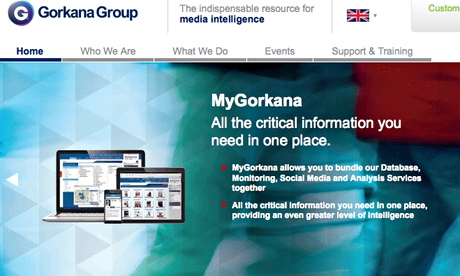
Media jobs website Gorkana sold to Cision in £200m deal
This article is about an employment PR company which has been sold to a rival company called Cision. This is a part of an expansion strategy.

- Cision, which is owned by US private equity firm GTCR, recently closed a $447m (£278m) deal to buy Vocus, creating a giant in the software for the PR sector.
- Gorkana was bought by private equity group Exponent, which also owns BBC magazines publisher Immediate Media, in 2010 for about £25m.
- The company made adjusted earnings of about £15m-£16m in its most recent financial year and had been looking to sell for about £200m.
- ''Cision shares our commitment to providing the best possible service to PR professionals, journalists and members of the media,” said Thompson. “Joining forces allows us to better serve our existing customers while also enhancing our ability to rapidly expand into new international markets.”
ndm article
http://www.theguardian.com/media/2014/oct/22/facebook-uk-corporation-tax
Facebook pays no UK corporation tax for a second year
This article is about Facebook not paying corporation tax for the second year which may be controversial for many as employees received shares in the company worth tens of millions of pounds.
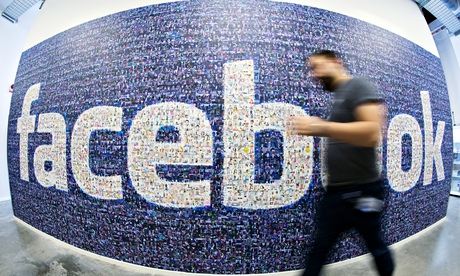
Facebook pays no UK corporation tax for a second year
This article is about Facebook not paying corporation tax for the second year which may be controversial for many as employees received shares in the company worth tens of millions of pounds.

- The world’s largest social media company reported a pre-tax loss of £11.6m in the UK last year, despite its US parent company reporting a net profit of $1.5bn (£900m).
- The company made £371m in advertising revenue last year, a 67% year-on-year rise from the £222m in 2012, according to research firm eMarketer.
- The company employed an average of 172 UK staff, who were paid £40.8m last year, almost double the 2012 figure of £21m.
- UK staff received 1.52m free Facebook shares worth $118m at their current share price of about $78.
- There were also 2.2m shares worth more than $170m “outstanding” as at 31 December.
- The government has promised a change in the law to crack down on offshore tax avoidance.
ndm article
Is UKIP winning on Facebook and Twitter?
This article is
about how Nigel Farage’s party has made an impact on social media as they have
been taking to Twitter to tweet about why they should be elected and they speak
against parties such as Labour.
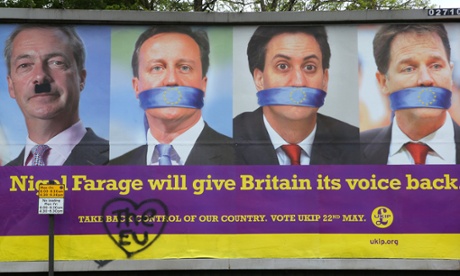
- A YouTube video of a Ukip calypso song has been shared widely online, with Nigel Farage tweeting at his supporters to buy the track and make it No 1 in the singles chart. #Ukipcalypso trended on Twitter on Monday as a result.
- The party, which is currently polling at 15% according to YouGov, has disproportionately high levels of social media engagement for the size of its membership (which is about 39,000, according to the most recently released figure, compared with 190,000 for Labour and 134,000 for the Conservatives).
- Ukip was, perhaps unsurprisingly, mentioned on Twitter more than any other party in the runup to the European elections
- Ukip currently has 276,435 likes on Facebook, which is just 18,153 likes short of the Conservative party’s 294,588 and over 82,000 ahead of the Labour Party, which only has 193,788.
l would say the easiest way to get a message across to the public by political parties is to take to social media. This is why UKIP have become quite popular on Twitter and Facebook.
ndm article
http://www.theguardian.com/technology/2014/oct/22/twitter-changes-hits-misses-history
Twitter changes: 20 hits and misses from the social network's history
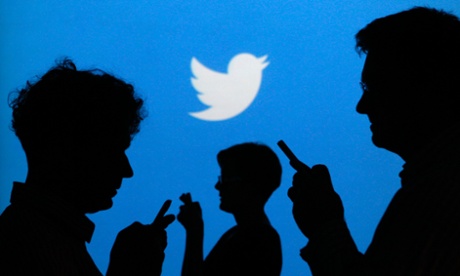
Twitter changes: 20 hits and misses from the social network's history

This article is about Twitter changing features on the site, which normally cause a debate. they announced a new application development called fabric. The changes impact Twitter users which then causes debate on Twitter about the site itself. Changes such as verified accounts, hyperlinked hash tags, retweet buttons and Twitter lists have in the past created topics to talk about and triggered criticism.
- In 2014, some people think it’s rude to manually re-post someone’s tweet with an RT at the start, rather than just tapping the retweet button. So it might be strange to think that once, all retweets were done in this way.
- In the first half of 2014, Twitter made $503m from advertising.
- This is one of the Twitter experiments that many people have forgotten. @EarlyBird was a new form of Twitter ad, but also an account that people could follow, tweeting out exclusive offers from advertising partners.
- BlackBerry was actually first to get an official Twitter app in April 2010, thanks to a partnership between Research In Motion and Twitter. But the same month, the company signified its intentions by buying popular iPhone app Tweetie, rebranding it as Twitter in May – by which point there was also an official Android app.
In my opinion Twitter is designed and made changes to according to what the consumers want, if they suggest something it would be taken into consideration. This is because even though Twitter is a large scale company, to keep consumers interested by using it they will make it more intriguing for users. This I believe is a good way to maximise profit for them.
Wednesday, 22 October 2014
examples of UGC
London riots 2011
Murder in Woolwich
Shooting at Sikh temple in Wisconsin
Kenya mall massacre
Student protests
Monday, 20 October 2014
Rise of UGC.
Examples-
- · The cause of the LA riots was caused because of an ordinary person using UGC.
- · The natural disaster of the Asian Tsunami on December 26th 2004, much of the early footage of events was provided by citizen journalists providing on the spot witness accounts as they unfolded.
- · The London bombings on July 7th 2005 provided another opportunity for citizen journalists to influence the mainstream news agenda by showing their footage of the bombings on their mobile phones.
- · An undergraduate student from Virginia Tech killed up to 30 people and it was recorded by another student as he was laying on the ground near the shooting.
- · Mumbai bombings November 2008, people were updated via Twitter.
- · Hudson River plane crash January 15th 2009, somebody posted a picture on Twitter of this which first broke the story.
Benefits to institutions-
- · It is easier to get a hold of a story if it is popular rather than finding one themselves.
- · They know what news the audience are interested in.
- · They do not need to hire many workers to investigate stories.
- · Crowd sourcing
Benefits to audiences-
- · Audience gets more credit
- · They create their own content
- · Their opinions are heard about through social media.
Wider issues and debates-
- · Without moderation sites can be overrun by bigots.
- · Opinions could be dominated which isn’t good for society (e.g. racism)
- · There would be fewer jobs and trained journalists
- · Less profit for bigger institutions
SHEP-
Social- Social rise in UGC, society
opinions could be voiced through social media.
Historical- In the past the way
people got their news was from professional journalists doing their jobs
looking for news stories which were then broadcasted on TV or printed on
newspaper.
Economical- Money is being made from
websites such as YouTube and Twitter as people post up user generated content. However
online viewing is free.
Political- The government would want
institutions such as the BBC to be broadcasting and getting the most views as
they are a neutral company, rather than nobody watching the news and looking up
news on UGC sites such as Twitter.
What impact is new/digital media having on the following?
News stories-
The audience can
now express their views on news stories through social networking sites. Due to
news being easier to access on apps and websites through smartphones the
audience can put a twist to news stories and add their own opinions which could
be flourished within society.
The news agenda-
The choice of stories that make up the news could be put
together by what the most popular stories may be currently, usually shown
through trends and popular topics on social media such as Twitter or Facebook.
Therefore new/digital media has a big impact on the news agenda as more people
would probably want to watch the news to find out more about topics they want
to know about.
The role of professionals in news-
Professionals in news are most likely becoming less
watched as the audience nowadays tend to put their own views on news stories
which they may present on YouTube or just general video footage on Twitter or
Facebook which could be shared further making it popular. Therefore news
professionals are sort of becoming less important in a way as the news is
becoming less mediated.
Wednesday, 15 October 2014
The rise of UGC
1.
What is meant by the term ‘citizen journalist’?
This is when public citizens play an active
role in the process of collecting, reporting, analysing and circulating news
and information.
2.
What was one of the first examples of news being
generated by ‘ordinary people’?
One of the first examples was a homemade
video of four police officers in the U.S that had just caught Rodney King who
was African American after a high speed chase. The officers surrounded the man,
tasered him and beat him with clubs. This was then shown on prime time news as
the video went viral and became an international media sensation. This was then
a focus for complaints against the police officers being racist towards
African-Americans. Due to this video,
riots were caused and there was a huge civil unrest known as the LA riots; this
went on for 6 days, 53 people died and around 4000 were injured. This was all generated by an ordinary person.
3.
List some of the formats for participation that
are now offered by news organisations.
UGC
·
message boards
·
chat rooms
·
Question and Answer
·
Polls
·
Have your says
·
Blogs with comments enabled
·
Social networking sites such
as Facebook, Twitter, Bebo, Myspace, YouTube and news sites such as Wikipedia
4.
What is one of the main differences between
professionally shot footage and that taken first hand (UGC)?
First hand footage is harder hitting and
emotive rather than professionally shot footage. It is a way for people to tell
their own stories and to show the harsh reality of current news such as
disasters like Tsunamis. The audience can then see unmediated footage on the
news. Perhaps the news now seems old fashioned and somehow staged if it lacks
the raw, grainy, low quality footage provided by citizen journalists.
5.
What is a gatekeeper?
Gatekeeping is the process through which
information is filtered for dissemination, whether for publication,
broadcasting, the internet, or some other mode of communication. Such as
editors of a newspaper, they decide what gets to be printed and shown to the
public.
6.
.How has the role of gatekeeper changed?
Gatekeeping
has changed as now individuals can use as much user generated content as they
want and can send it to news institutions such as the BBC. The independent media
on the web is a way to get around the gatekeepers as niche views and minority groups
can use UGC to post up whatever they like and share their opinions using blogs
or social media sites. Therefore the groups who had little access to
self-representation before can now through citizen journalism begin to find
they have a voice too.
7.
What is one of the primary concerns held by
journalists over the rise of UGC?
Journalists fear their jobs as everyone is
producing their content. They believe in the future there will be fewer trained
staff in news organisations as the job is already being done for them. Leaving
core staff to manage and process UGC from citizen journalists. Some believe
that mediators and moderators may disappear too leaving the world unmediated as
sites could be overrun if they are not mediated. It could be dominated by free
speech of racism and all sorts which is a massive negative.
Monday, 13 October 2014
article
http://www.theguardian.com/media/media-blog/2014/oct/12/twitter-breaking-news-pr-vivian-schiller
Can Twitter make money out of breaking news or is it a PR platform?
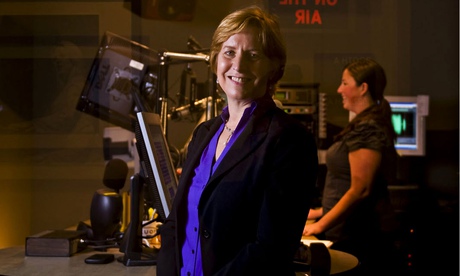
This article is about a debate currently taking place on whether Twitter is just a platform for breaking news or the PR. The head of news and journalism Vivian Schiller has stepped down which is supposedly bigger news on Twitter than other news stories such as the spread of Ebola and entertainment news such as Xfactor.
- Twitter over whether it should largely be a conduit for journalism or PR. And whether a technology company, even one with 271 million monthly users, believes it can make money out of breaking news.
- The role of heading “news” now returns to Adam Sharp who will also continue to lead the “government” team, which sounds like a lobbying operation but is in fact the part of the company devoted to boosting the number of political decision-makers using the service.
- Twitter has always seemed bigger than it actually is because of the type of people – celebrities, sports stars and politicians as well as newshounds – who use it
- Twitter has behaved as any company with quarterly revenue and share price targets to meet has to and got rid of its most obviously loss-making ambitions.
In my opinion Twitter is now a platform for various types of news, hard news and soft news as it the audience will always take to a social networking site to find out the latest news as it is a quicker way of finding out news. Therefore the PR is also a big thing for companies such as Twitter.
Sunday, 12 October 2014
Buzzfeed
20 Things That Are Better When They’re Together
This article
shows quite odd things that go together and that have made it viral on the
internet. Such as videos with animals dressed up in crazy costumes but somehow
go together and are quite popular. An example would be the dog breed pugs
dressed in bows and hats, scissors with a tape dispenser attached with go well
together, animals such as pandas playing on slides. These are all things that
interest people as they are very unusual, this catches individual’s attention
which then they spread the word about and eventually becomes viral. These
videos are mainly on YouTube as it is a large institution.
This news is
different from traditional media as the topic is unusual and this type of news
is most likely to be spread on social networking sites as it is entertainment
news (soft news). Whereas traditional news is more likely to be hard news and
about various factors important to the country and about issues around the
world. This news is also normally shown on TV and in newspapers unlike this
buzzfeed article.
Friday, 10 October 2014
article
http://www.theguardian.com/media/2014/oct/10/cassetteboy-david-cameron-mashup-copyright
Cassetteboy: 'David Cameron won't be pleased by our video'
This article is about the videos Cassetteboy have made, they may be controversial but they believe they are sticking by the law and are allowed to make parodies with a certain amount of copyright material. They hope to make money from their edited videos as their latest video about the Prime Minister has had 3.5 million views on YouTube.
- The duo started off making audio parodies, and moved into video with mashups spoofing shows from The Apprentice to Dragons’ Den.
- Until last week, the videos he made with his partner-in-crime Steve – who works in an art gallery – would have contravened UK copyright law. But the amendment to the Copyright, Design and Patents Act 1988 has brought them in from the cold.
- Under the new law it would be legal to broadcast Cassetteboy’s work.
In my opinion cassetteboy could make a lot of money if they had their own TV show, however they have become popular from YouTube and have shared their videos on social networking sites such as Twitter and Facebook. The law has been eased down to certain parodies being made such as the ones cassetteboy creates as they are quite popular and there is no harm in having a bit of fun.
Wednesday, 8 October 2014
article
http://www.theguardian.com/media/2014/oct/08/last-fm-made-loss
Last.fm made loss of £2.1m last year
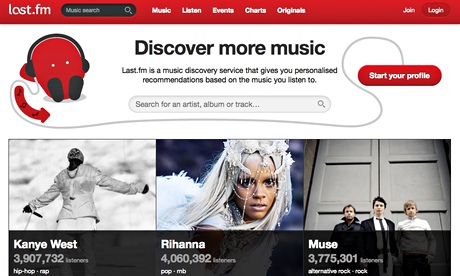
This article tells us that Last.fm lost £2.1m last year as revenues slumped more than 20%. Last.fm competes with other internet music providers and has made annual losses since aquired by the US broadcaster in 2007 for $280m.
- Revenues fell 22.8% from £6.38m to £4.92m.
- UK revenues almost halved (from £1.28m to £693,000); US revenues fell by 22% (£3.6m to £2.8m); rest of world slumped by 60% (£725,655 to £288,859).
- The only bright note was countries within the EU, which grew from £740,659 to £1.12m.
- Cost of sales almost halved from £5m to £2.78m year on year.
- Staff numbers fell from 61 to 35 with the total cost of wages and salaries dropping from £3.7m to £2.75m.
Internet music/video providers such as YouTube have made the most profit for a running while, Therefore it would be difficult for a site like Last.fm to compete, so it is understandable why revenues fell for them. However I would blame the media giants for this as the majority of the most popular sites are owned by a minority so they make the most profit so is difficult for other similar sites to compete.
article
http://www.theguardian.com/media/2014/oct/06/bbc-iplayer-30-days-sherlock
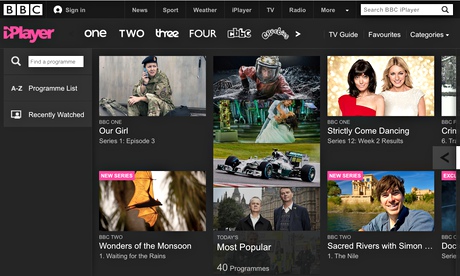 BBC iPlayer catch-up window extended to 30 days
BBC iPlayer catch-up window extended to 30 days
This article is about BBC making their programmes and radio shows available for a longer period of time of 30 days rather than 7 days. This is because shows like 'Sherlock' was the most viewed programme online in 2014 to date. This scheme has been put through in time for the popular autumn dramas such as 'Peaky Blinders'.
- There are more than 7m requests for BBC iPlayer programming a day.
- The BBC said the Sherlock series three opener had received more than 3.6 million requests on the iPlayer.
- The move came as the BBC revealed that Sherlock’s return from the grave is the most popular show on the iPlayer so far this year.
I would say this is a good idea for the BBC as the programmes aired on BBC channels are quite popular, so when the audience cannot watch the show as it comes on TV they do not have to miss out on anything, they also do not have to rush to watch the programme before it goes as they have a month to watch it.
article
UK viewers ‘spend five hours a week viewing TV, clips and films online’
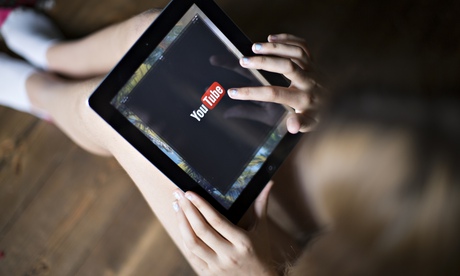
This article is about how TV shows are the main form of online content and how much time viewers consume online watching TV shows on average. Social networking sites such as twitter are used less than watching TV shows.
- average of two hours and 35 minutes a week
- Films were watched an average of one hour 50 minutes a week, and video clip views averaged 51 minutes.
- A third of online viewers, particularly 35- to 44-year-olds, are watching more TV, films and clips online than a year ago
- Londoners averaged the most time watching online TV (three hours six minutes) and films (two hours 27 minutes), possibly because of the amount of time many commuters spend on public transport with their smartphones and tablets.
- The report also found significant growth in social media ad spend on sites such as Twitter and Facebook, up 73% to £396m, with just over half of that targeted at users accessing such services on their mobiles.
In my opinion the reason to why so much time is spent watching TV is becasue nowadays there are more interesting programmes that would appeal to a wide variety of people. Smartphones are the most used piece of technology of our time and many people use them to stream shows onine as you can watch repeat shows online as individuals may not have time to watch the programme they want to as it comes on TV at that time.
Monday, 6 October 2014
news article
Sky ‘saddened’ over death of alleged McCann troll
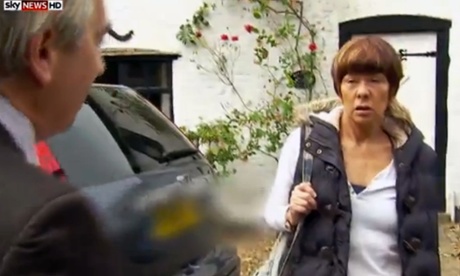
This article is about a women who threatened the McCann family over the social networking site, Twitter. Brenda Leyland, 63, was found in a hotel room in Leicester on Saturday, after being challenged outside her home by the broadcaster over claims that she used Twitter to post a series of comments attacking the McCanns, whose daughter disappeared in Portugal in 2007.
- Leyland was accused of being one of dozens of people to have attacked Kate and Gerry McCann via the internet.
- Leyland explained that she “had questions for the McCanns” but “hoped she hadn’t broken the law” in her online posts.
- Neighbours said they believed Leyland had fled the small village in rural Leicestershire, where she had lived for nearly 15 years.
- A Leicestershire police spokeswoman said: “Police were called at 1.42pm on Saturday 4 October to reports of a body of a woman in a hotel room in Smith Way, Grove Park.
- Gerry McCann, told BBC Radio 4’s Today programme that he had not read the alleged abusive messages, and did not intend to. But he added: “Clearly something needs to be done about the abuse on the internet. I think we probably need more people charged.”
Subscribe to:
Posts (Atom)